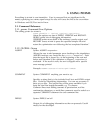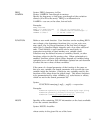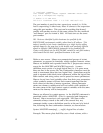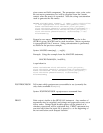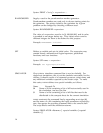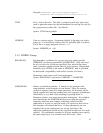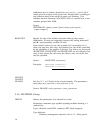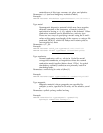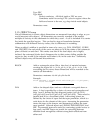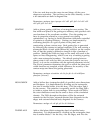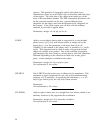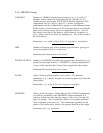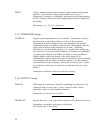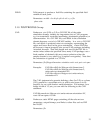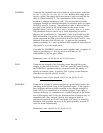
materials are of this type: vacuum, air, glass, and plastics.
Parameters: n, k (real and imaginary refractive index)
Example:
DEFINE matname= BlackGlass type=dielectric n=1.52 k=1e-3
Type metal
Nonmagnetic dispersive material which may have negative
dielectric constant at the frequency of interest, which is
equivalent to having n < k, e.g. metals in the infrared. Other
conductive materials can be modelled as conductor type.
There are two ways of specifying a metal: using the n and k
values at the centre wavelength of the sources, or using a file
produced FITMAT, which fits Debye and Lorentz poles to
user-supplied n,k data.
Parameters: n, k , file
Example:
DEFINE matname= Gold3_1um type=metal n=0.3 k=11.23
DEFINE matname= Nickel type=metal file=nickel.poles
Type conductor
Normal conductor, with ε = ε0+jσ/ω Useful for metal
waveguide boundaries, at frequencies where the normal
conduction model applies (below about 1 THz). In optical
simulations, ordinary conductors are primarily useful in
simulating loads.
Parameters: conductivity (in units of (Ωm)-1)
Example:
DEFINE matname=copper type=conductor conductivity=5.8e7
Type magnetic
Magnetic material, whose properties are specified by
complex µ and ε, specified in SI units, not the relative µ and
ε.
Parameters: epsReal epsImag muReal muImag
Example:
DEFINE name=ferrite type=magnetic epsReal=18,
epsImag=0 muReal=220 muImag=1.1
17




